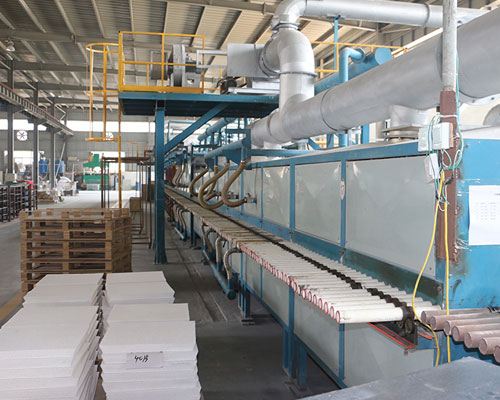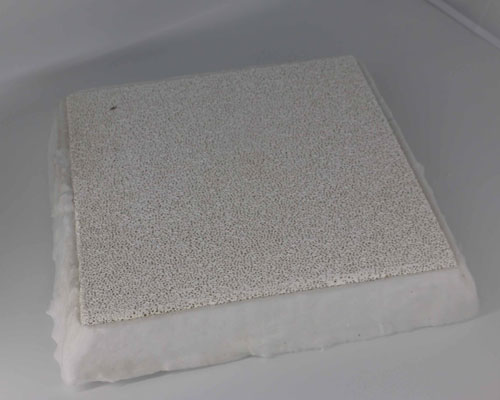Foam ceramics Filters are the third generation of porous ceramics filters, which are newly developed after ordinary porous ceramics filters and honeycomb ceramics filters. Foam ceramics filters can form many small holes and many twists and have many advantages, such as high strength, high temperature resistance, and good filtration and adsorption. They can be widely used in metallurgy, casting, chemical industry, environmental protection, light industry food and energy saving. The porosity is greater than 80%, the tensile strength is 2.2MPa, and the softening temperature is greater than 1500°C; the materials are aluminum oxide, magnesium oxide and silicon carbide. Special-shaped products can be prepared according to needs, with small specific gravity and corrosion resistance.
Alumina ceramic foam filter is an effective molten metal filter. Its three-dimensional connected network structure and high porosity have many advantages, such as a large surface area for slag collection. The filter has a large internal surface area, small flow resistance, and good filtering effect. The size of the alumina ceramic foam filter can be customized.
Ceramic Foam Filter Dimension
660x660x50(26″)
584x584x50(23″)
508x508x50(20″)
432x432x50(17″)
381x381x50(15″)
305x305x50(12″)
228x228x50(9″)
178x178x50(7″)
Ceramic foam filter pore size(PPI):10/20/30/40/50/60

Alumina Foam Ceramics Filters Molten Aluminum Filtration
- Reduce waste related to inclusions
- Reduce costs associated with inclusion defects
- Increase productivity through higher extrusion or rolling speed
- Easy to replace alloys, improve casting flexibility
- No fixed metal
Features of Alumina Ceramic Foam Filter
- Excellent dimensional tolerance
- Stable chemical composition
- Highest filtration efficiency
- Excellent strength
- Resistant to corrosion of molten aluminum and alloys
- Bevel and compressible gasket
Alumina foam ceramics filters for casting are mainly used to filter aluminum and aluminum alloys in foundries. It has excellent corrosion resistance and molten aluminum corrosion performance, can effectively remove inclusions, reduce residual gas and provide laminar flow, and then the filtered metal is significantly cleaner. Cleaner metals can produce higher-quality castings, fewer scraps and fewer inclusion defects, all of which help increase profits.


Pingback:Ceramic Filter for Molten Aluminum Filtration – 站点标题